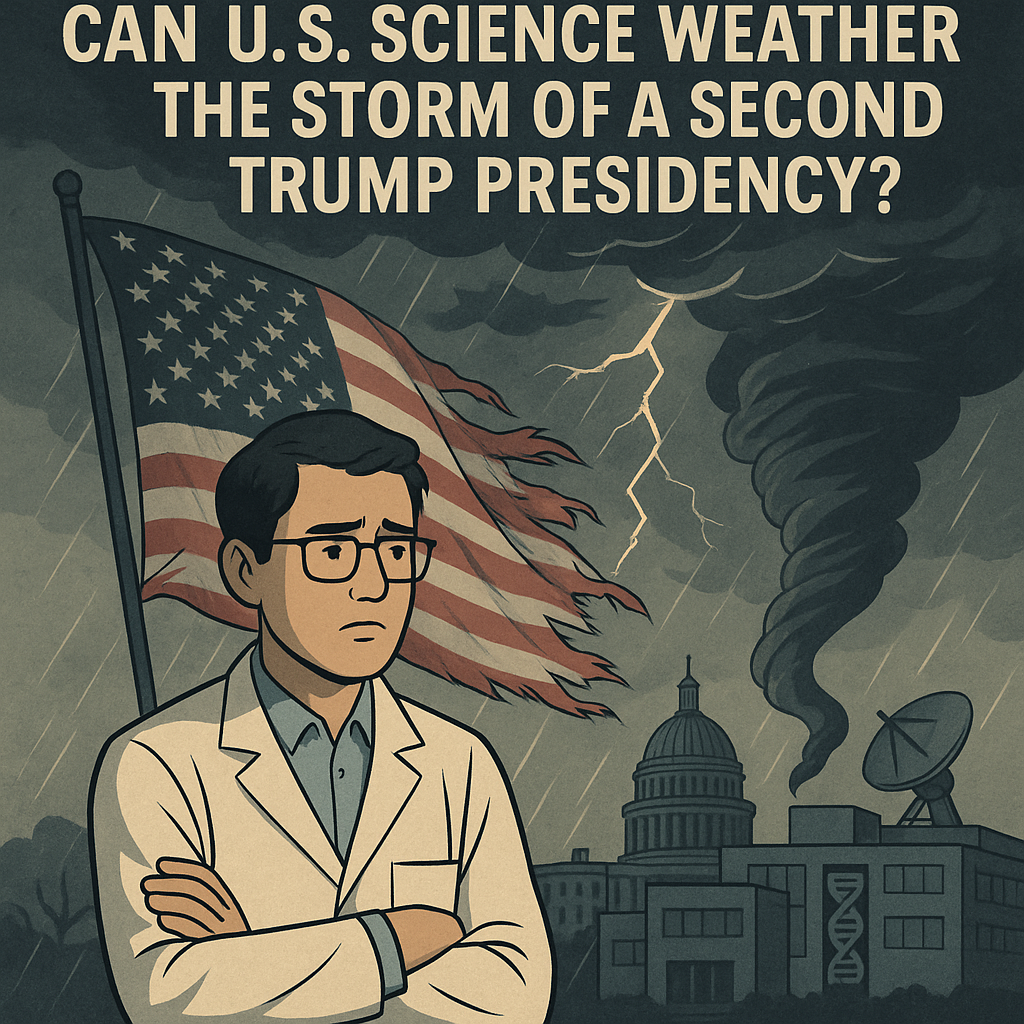The scientific enterprise in the United States, once considered a beacon of global innovation, is under mounting strain. With Donald Trump now in a second term, a wave of anti-science and anti-immigration policies is triggering alarm throughout the academic world. Thousands of government scientists have lost their jobs, over a thousand federal grants have been revoked, and leading science agencies like NASA and the NIH face cuts of up to 40%.
But the impact extends beyond budget lines. America’s scientific excellence has long been powered by immigrant scholars—and now, many of them are reconsidering whether the U.S. remains a place where science can thrive.
A Legacy of Immigration: Then and Now
History tells us what happens when science and politics collide. In the 1930s and 1940s, as the Nazi regime purged Jewish and dissident intellectuals, the U.S. became a sanctuary. Refugees like Albert Einstein, Hans Bethe, Lise Meitner, and Edward Teller helped lay the foundation for America’s dominance in nuclear physics, aerospace engineering, and quantum theory. That migration wave helped transform the U.S. from a developing science nation into a global scientific superpower.
Fast-forward to today: immigrant scientists still form the backbone of U.S. research institutions. As of 2023, over 40% of U.S. doctoral scientists in science and engineering fields were foreign-born. They lead labs, author pioneering papers, and educate the next generation of innovators. Fields like artificial intelligence, biomedical research, and climate science are disproportionately powered by international talent.
Yet this system is now under threat. Trump’s policies have made it increasingly difficult for immigrant scientists to stay, work, or feel welcome. Visa backlogs have worsened, green card processing has slowed, and initiatives like the J-1 and H-1B visa programs—which support postdocs and faculty—have been targeted for restriction or elimination.
A Brain Drain in the Making?
According to a Nature survey from April 2025, 94% of U.S.-based researchers expressed concern about the future of science under the current administration. Alarmingly, a growing number of foreign-born researchers are choosing to leave—returning to Europe, China, India, or Canada where science funding and immigration policies are perceived as more stable.
One researcher from Iran shared anonymously:
“After six years of building a lab in the U.S., I’m now advising my PhD students not to stay. It’s heartbreaking, but they deserve stability.”
This exodus is not just symbolic—it risks reversing decades of U.S. leadership in discovery and innovation.
Science in the Crosshairs
The administration’s skepticism of climate science, pandemic response, and basic research has already led to policy decisions that contradict scientific consensus. Critics argue that dismissing expert advice in favor of political narratives has tangible consequences—not only for research integrity, but for public trust and national resilience.
In March, nearly 2,000 members of the U.S. National Academies of Sciences, Engineering, and Medicine signed an open letter warning that “the nation’s scientific enterprise is being decimated.”
Holding the Line
Despite the hostile climate, many scientists—foreign-born and domestic—are standing firm. Advocacy groups, universities, and professional societies are organizing legal support, policy briefings, and grassroots campaigns to protect evidence-based research.
They are also pushing to reframe immigration as a strategic investment. Just as immigrant physicists helped the U.S. win World War II and land on the Moon, today’s global talent could be the key to solving climate change, cancer, and cybersecurity challenges.
From Einstein to CRISPR, the American scientific story has always been one of openness, diversity, and perseverance. But history also teaches us what happens when fear and politics override facts: progress slows, and opportunity is lost.
Whether the U.S. continues to lead the world in science may depend not just on labs and funding—but on whether the nation chooses to welcome those who dedicate their lives to discovery, regardless of where they come from.
Source :
https://www.nature.com/articles/d41586-025-01295-6

